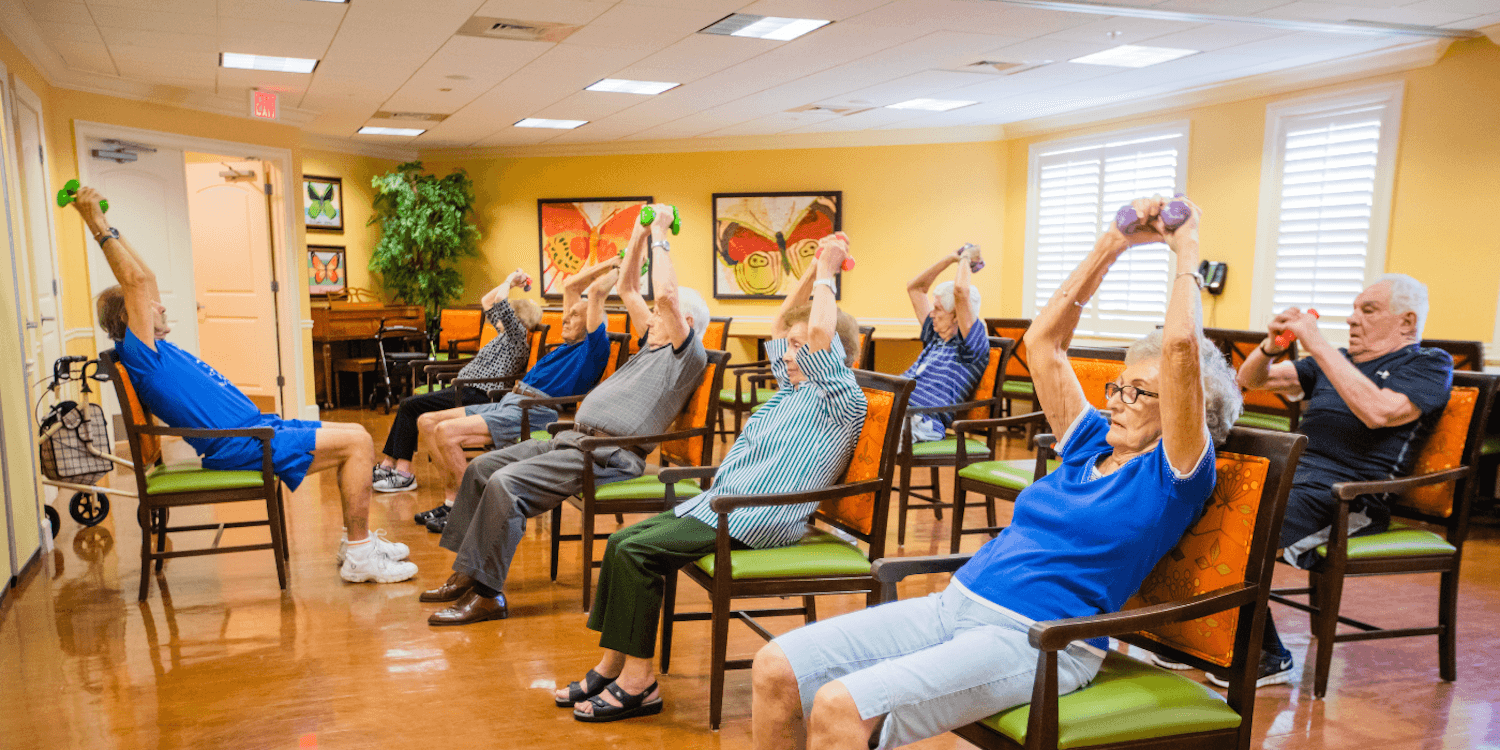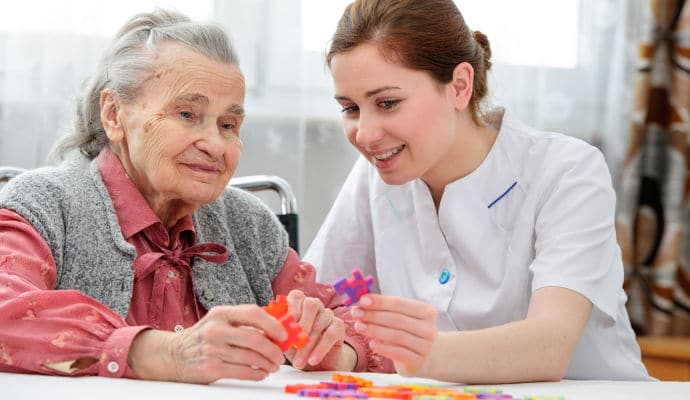Creating a Safe and Supportive Setting for Alzheimer's Care
The creation of a risk-free and encouraging setting for individuals with Alzheimer's is vital in enhancing their quality of life. Exploring these complex techniques can reveal critical understandings into reliable caregiving strategies that may transform the everyday experiences of both caretakers and people.
Recognizing Alzheimer's Demands
Regularly, people with Alzheimer's condition exhibit a variety of needs that require customized strategies to care. As the problem proceeds, cognitive decrease shows up in numerous means, influencing memory, thinking, and also the capacity to execute daily activities. Caretakers have to recognize these developing demands to provide proper assistance and make certain a higher high quality of life for those influenced.
One essential element of recognizing Alzheimer's needs is recognizing the significance of routine and knowledge. People typically locate comfort in well established patterns, which can reduce stress and anxiety and confusion. Caretakers ought to strive to develop organized everyday schedules that include significant activities straightened with the person's interests and capacities.
Furthermore, effective communication is extremely important. People with Alzheimer's may battle to reveal themselves or comprehend intricate language. Caregivers need to utilize simple, clear language, use non-verbal signs, and practice active paying attention to foster understanding and connection.
Caregivers must encourage engagement in area tasks or household events, promoting a sense of belonging and function. Comprehending these varied requirements is necessary for developing a supportive treatment atmosphere.
Creating a Safe Home
Creating a safe home for individuals with Alzheimer's disease is essential to advertising and minimizing dangers self-reliance. Make sure that pathways are clear and well-lit, as correct lighting minimizes disorientation and improves wheelchair.
Incorporating flexible features is likewise important. Mount grab bars in washrooms and near stairs, and consider utilizing non-slip floor coverings in damp locations. Furthermore, making use of different shades for floorings and wall surfaces can help in distinguishing rooms, assisting to minimize confusion.
Familiarity is important for people with Alzheimer's. Customizing the atmosphere with acquainted items and pictures can reinforce a feeling of belonging and safety and security - Alzheimers Care Charlotte. It is also helpful to have a designated area for everyday tasks, such as reading or crafting, which can supply structure to their day
Last but not least, executing a protected exterior room enables risk-free expedition while connecting with nature. By attentively designing the home environment, caretakers can dramatically enhance the top quality of life for individuals living with Alzheimer's illness.
Enhancing Communication Skills

Non-verbal communication, including faces, gestures, and touch, plays a vital role in communicating empathy and understanding. Maintaining eye contact and a tranquil temperament can enhance the convenience degree of the individual, promoting a feeling of safety and security.
Moreover, it is essential to exercise energetic listening. This includes being totally present, revealing perseverance, and allowing the person to reveal themselves without disturbance. Rep might be needed; caregivers need to be prepared to take another look at concerns or subjects, as people with Alzheimer's may deal with memory recall.
Furthermore, using aesthetic help or hints, such as photos or familiar things, can promote acknowledgment and engagement. Inevitably, enhancing interaction skills has to do with building count on and developing an atmosphere where people really feel heard, valued, and comprehended, thereby enriching their top quality of life.
Motivating Social Interaction
Fostering purposeful social interactions can greatly improve the wellness of individuals with Alzheimer's condition. Engaging with others not just aids fight sensations of isolation however additionally promotes cognitive feature and psychological health and wellness. Structured social find tasks, such as team crafts, arts and games, or music therapy, produce opportunities for residents to get in touch with peers and caretakers, which can lead to enhanced mood and reduced anxiousness.
Creating a welcoming setting that motivates socializing is crucial. This can be achieved by setting up common spaces that facilitate communication, such as comfortable seating locations or task areas. In addition, integrating culturally appropriate and acquainted tasks can urge and spark memories participation, enabling individuals with Alzheimer's to feel even more connected to their past experiences.
Additionally, caretakers should be trained to recognize and promote social interaction amongst homeowners. By focusing on social interaction, we can dramatically enhance the lives of those living with Alzheimer's, promoting a feeling of community and belonging.
Sustaining Caretaker Wellness

To sustain caregivers, companies should provide routine training and academic sources to enhance their understanding of Alzheimer's disease and caregiving techniques. Giving accessibility to reprieve treatment solutions allows caretakers to take needed breaks, reducing stress and tiredness - Alzheimers Care Charlotte. In addition, cultivating an area via support system can facilitate psychological sharing and the exchange of practical recommendations amongst caretakers, creating a network of mutual support
Psychological health sources, such as counseling services, can likewise be essential in attending to the psychological toll caregiving can take. By focusing on caretaker well-being, we create an even more lasting caregiving atmosphere that not just profits the caretakers themselves yet also improves the overall quality of care obtained by people with Alzheimer's. Ultimately, sustaining caregivers is a necessary component in cultivating a effective and thoughtful treatment setting.
Final Thought
Finally, the production of a helpful and safe atmosphere for individuals with Alzheimer's is important to boosting their lifestyle. By focusing on safety with thoughtful style, promoting psychological wellness with familiar aspects, and promoting involvement through structured routines, caretakers can considerably influence the overall experience of those affected find more information by this problem. In addition, sustaining caregiver wellness is essential, as it eventually adds to an extra caring and efficient care setting.
Rep may be required; caretakers should be prepared to review topics or questions, as individuals with Alzheimer's may have a hard time with memory recall.
